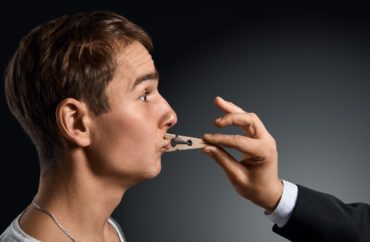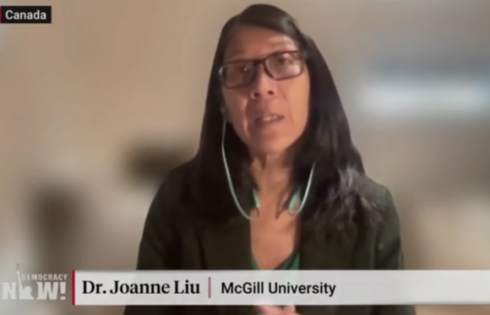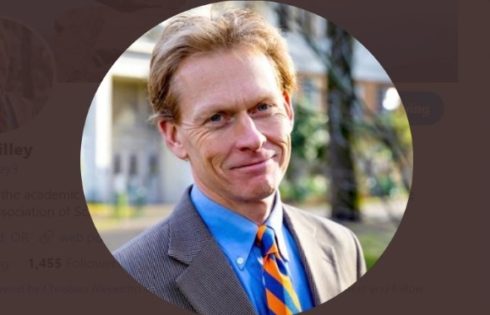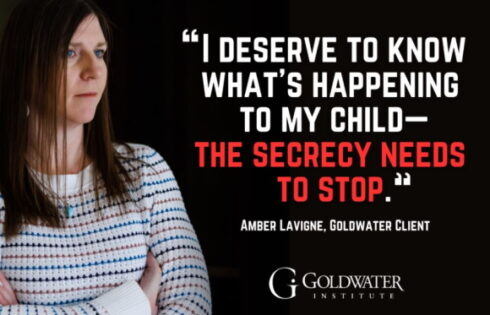
Free speech group sounds alarm on effort by Indiana U. to restrict campus protests
A free speech group is sounding the alarm on a draft expressive activity policy under review at Indiana University, arguing it is so broad that — if followed to the letter — could essentially ban classroom speech.
A big point of contention is, for one, the proposal’s definition of expressive activity, stating it includes: “assemblies, speech, distribution of written material, carrying of signs, picketing, protests, counter-protests, or sit-ins.”
The proposal also states expressive activity “must not take place in areas that are used for instructional, administrative, or residential purposes, or are not otherwise open to the general public, such as classrooms, studios, laboratories, residential space, or office areas.”
Laura Beltz, director of policy reform for the Foundation for Individual Rights and Expression, told The College Fix that because the proposal bans all expressive activity in areas used for instructional, administrative, or residential purposes, including classrooms, residential spaces, and office areas, it could be used to limit protected, nondisruptive protest.
For example, it could ban wearing an armband protesting an invited speaker or someone silently carrying a protest sign in a library, Beltz said via email.
But perhaps even more notably, she added, because the proposal defines expressive activity as including “speech,” and bans it in “instructional” areas — “IU has, presumably unintentionally, banned all speech in classrooms with this policy.”
FIRE is urging administrators to revise the policy, set to go into effect Aug. 1, arguing as written it amounts to administrative overreach and violates student’s constitutional rights.
Cooper Tinsley, president of the university’s student government, sent the policy draft to the campus community via email at the end of June asking for feedback, stating the deadline for feedback is July 15, according to local news reports.
Tinsley did not respond to The College Fix’s requests for comment.
The new expressive activity policy draft is IU’s attempt to further clarify regulations on campus protests after receiving backlash over its midnight policy change in April, when top administrators revised the outdoor policy — which had existed for over 50 years — the night before a planned anti-Israel encampment was to go up.
The hastily written revise banned overnight camping and temporary structures, such as tents.
“President Pamela Whitten confirmed the policy change in an email to faculty on April 25, the same day as the encampment protest and after 34 protesters were arrested,” NPR reported.
That enforcement angered many observers, including faculty and students, especially because it regulated an area on campus called Dunn Meadow, which had served as a beacon of free speech and campus activism for decades.
FIRE sent a five-page memo to the school on May 3 pointing out several examples in years past of tents used on Dunn Meadow for peaceful protests for various causes — but seemed intent on stamping out the pro-Palestinian protest.
“Signs displaying the revised policy alerted protestors arriving at Dunn Meadow the morning of April 25 that IU had pushed through this overnight policy change,” the memo stated, adding that shortly thereafter police took aggressive actions to enforce the new policy.
“[R]eports indicate that at about 4 p.m., the university sent in police officers—armed with assault weapons, riot shields, and pepper spray. These officers began forcefully removing protestors from tents, dragging them across a field, and zip-tying their hands,” the memo states, adding more than 50 protesters were arrested under the newly revised policy.
Beltz told The Fix the university’s proposed draft policy is still a problem, as it “fully bans overnight camping, despite the fact that it has been IU’s past practice to allow overnight camping in Dunn Meadow in connection to expressive activity.”
The draft policy also requires that temporary installations of any signs and structures must be requested at least 10 days in advance, she said, pointing out protesters often attempt to respond to recent or current events, so the extensive time period is prohibitive.
The draft policy also states that signs “may not be affixed to or hung from any structure or property owned, leased, or managed by the University … without the prior permission of University Capital Planning and Facilities.”
This presumably restricts students to post flyers without school approval, which restricts students who may want to speak on an issue anonymously, Beltz said.
“FIRE will be urging IU to consider revisions to this policy to more narrowly target disruptive expressive activity,” Beltz told The Fix.
MORE: Academics seize on Trump assassination attempt
IMAGE: Andrii Avram / Shutterstock
Like The College Fix on Facebook / Follow us on Twitter






Please join the conversation about our stories on Facebook, Twitter, Instagram, Reddit, MeWe, Rumble, Gab, Minds and Gettr.